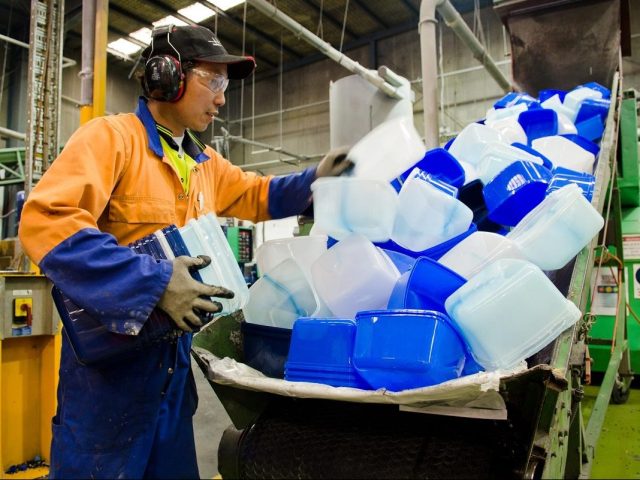
Pact Group has released its updated sustainability journey in its 2022 Annual Report, identifying its latest and upcoming initiatives in its drive to reduce emissions.
The company said it has committed to reducing greenhouse gas emissions by 50 per cent in Australia and New Zealand by 2030 in relation to the emissions produced directly at recycling and manufacturing facilities, and the indirect emissions from purchasing electricity from the grid to power those facilities, from a FY21 baseline.
In what is a first for an Australian-based manufacturing company, Pact Group said it has also reached an agreement to convert $420 million of existing loan facilities into Sustainability-Linked Loans (SLLs).
Under this arrangement, Pact will receive loan margin benefits if annual sustainability performance targets are achieved, and a margin penalty if it underperforms. The sustainability performance targets are:
- An increase in the percentage of recycled content across Pact’s packaging portfolio
- Increasing the amount of recycled material processed and distributed to the external market
- Reducing scope 1 and 2 greenhouse gas emissions
- Reducing the gender pay gap
In addition, Pact Group non-executive chairman Raphael Geminder said Pact will be making investments to support its 2025 End of Waste Promise, which is to eliminate all non-recyclable packaging and offer 30 per cent average recycled content across Pact’s plastic packaging portfolio.
“To help achieve these targets, Pact is investing $75 million over three years to install new technology and equipment with the capability to increase the recycled content in products including milk bottles, food packaging, mobile garbage bins and industrial packaging across our Australian network. This will also assist our customers in meeting their own ambitious APCO targets,” he said.
Pact also recently announced that it is working to establish a strategic partnership with Woolworths that will see Pact use approximately 18,000 tonnes of recycled plastic each year to manufacture and supply for Woolworths’ own brand range.
As part of this partnership Woolworths plans to replace corrugate boxes for transporting produce with Pact’s reusable plastic produce crates over the next three years, increasing usage from approximately 50 million to 80 million crates a year.
Pact managing director and group CEO Sanjay Dayal reiterated the company’s full-year financial results for 2022, which saw a revenue growth of four per cent from FY21, but a dip in its underlying earnings before interest and tax and underlying net profit after tax.
“The environmental factors that we faced in FY22 are continuing to impact on the first half performance in FY23 and we expect ongoing supply chain disruption, cost increases across most spend categories and volatile labour availability,” he said.
“Our expectation is that conditions will improve and costs stabilise in the second half of the year. Despite the disruptions and challenges that the Group will continue to face, we forecast slight growth in underlying EBIT in FY23. Consistent with our previous approach, and given the uncertainties of the operating environment, the Group will provide an update on trading at our AGM in November.”
Dayal also mentioned the several targets that Pact is working towards through FY23 and beyond, including:
- Delivering value from the Circular Economy of at least an additional $25 million of EBIT, with the run rate achieved by the end of FY25
- Increasing the average recycled content across plastics to 30 per cent by the end of FY25
- Lifting EBIT margins in Packaging Australia to 10 per cent by FY26
- Refining the portfolio and reset gearing levels to below 2.5 times by FY24
- Achieving a safety target of TRIFR below 8.0 by FY24, and
- Achieving an emissions target to reduce its Scope 1 and 2 Greenhouse Gas emissions by 50 per cent by 2030 in Australia and New Zealand from a FY21 baseline.


